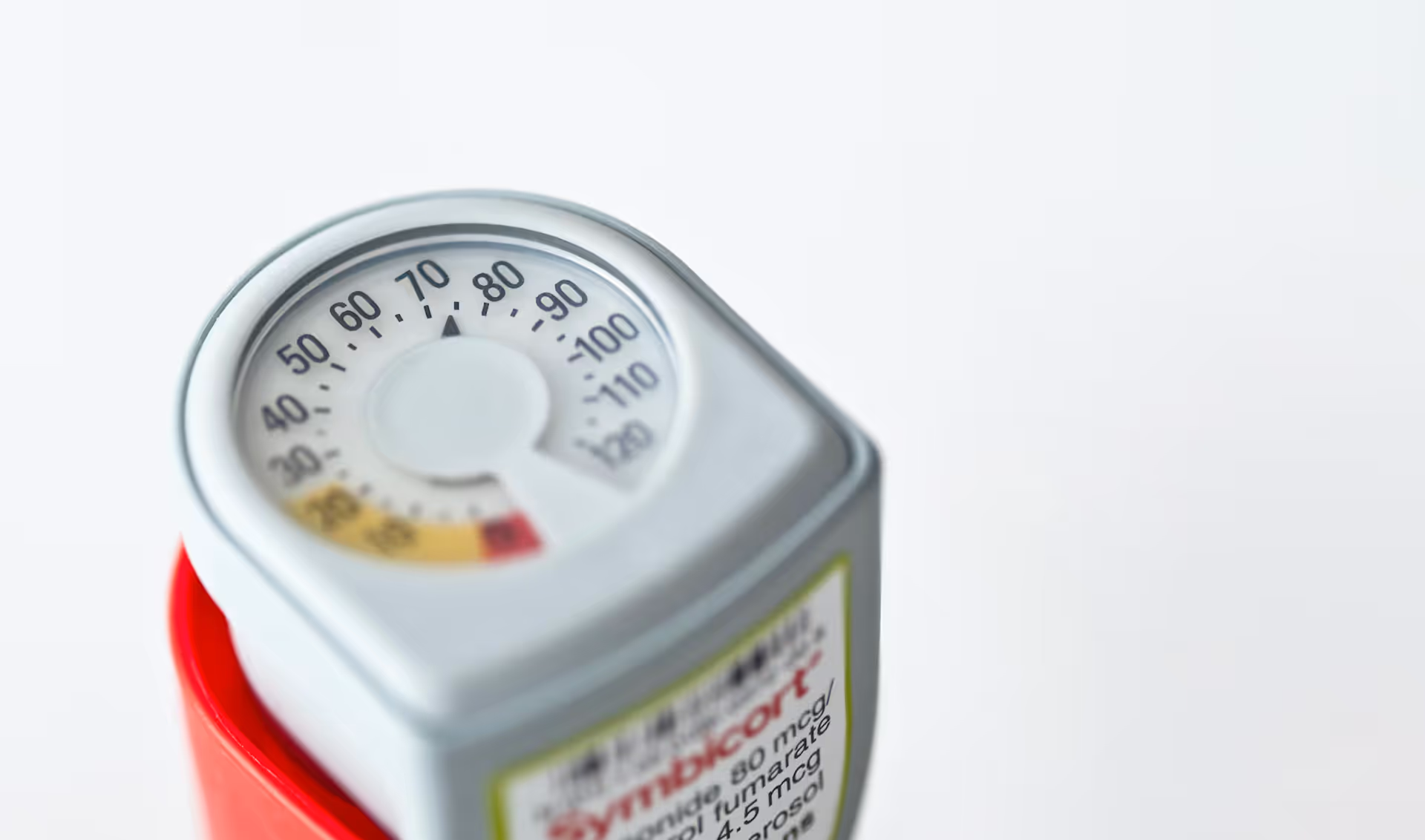TTP's approach reduced risk and uncertainty in R&D and ultimately led to a better product: a top-mounted dose counter which achieves high levels of reliability and has fewer parts than competitor devices.
Context
Companies in biotech, pharma and the medical device industry have to meet demanding regulation. The introduction of a requirement to integrate dose counters into pMDI drug inhalers set off an industry-wide race for proprietary solutions.
Solution
TTP used a first-principles approach to R&D to rapidly design a reliable and inventive pMDI dose counter for AstraZeneca. The concept had the added benefit of having fewer parts and being lower cost than the main competitor.
Result
Using TTP’s design, AstraZeneca received FDA approval for Symbicort® without questions on its first submission. Symbicort®, a world-leading asthma therapy, now generates more than $2bn in revenue for AstraZeneca each year.
Many modern, inhaled asthma therapies contain a drug combination with a preventive element (long-acting beta-agonists) and a potentially life-saving reliever element (corticosteroid).
Despite being low cost and mass-manufactured, an inhaler is therefore a safety-critical device with associated high-reliability requirements.
By extension, the display indicating the number of doses remaining in an inhaler is also safety-critical and must be equally reliable – otherwise the user may mistakenly assume they have medication left in their inhaler, resulting in a potentially life-threatening situation.
When the FDA introduced guidance requiring that new metered inhalers include a dose-counting mechanism, we used a first-principles approach and probabilistic methods to rapidly design a highly reliable dose counter for AstraZeneca’s Symbicort® product.
Our design offers the user-preferred features of being top-mounted and providing a non-linear motion of a dial on a colour display, enabling a clear dose count from 120 to 0. Moreover, the design consists of only six parts – substantially fewer than competitor devices – and achieves high levels of reliability in an industry-leading low-cost differentiated form factor.

The development of AstraZeneca’s Symbicort® inhaler exemplifies the value of a first-principles approach to R&D, and the appropriate use of novel technology and methods.
Breaking the device down into fundamental mechanisms highlighted inherent design challenges and provided a framework for concept generation and evaluation, with a focus on concepts that satisfied the performance requirements of the device with a minimum amount of complexity.
Need support with your next project? Contact our Drug delivery device development team.
Probabilistic design methods were used to assess, develop and generate the manufacturing specification for a reliable concept. This deterministic approach meant that early device testing was less a journey of discovery, and instead essentially confirmation of what was already known.
Our approach reduces risk and uncertainty in R&D and ultimately led to a better product. The same understanding allowed us to confidently write a supplemental New Drug Application (sNDA) which was approved by the FDA without questions on its first submission.
Symbicort® now generates more than $2bn in revenue for AstraZeneca each year.
About TTP's Drug Delivery consulting team
From blank sheet to clinical reality, TTP's Drug Delivery Design and Development team creates ground-breaking solutions to solve the toughest drug delivery challenges. With deep engineering, human factors, and scientific expertise, we guide you through every stage of drug delivery device development - from early exploration to manufacturing and final launch. Backed by an extensive track record we expertly navigate constraints to develop robust, efficient, scalable devices - enabling the delivery of transformative therapies and enhanced patient experiences.
Find out how we can help you with your drug delivery consulting needs.
TTP's Drug Delivery team is part of our broader Medical Device Consulting team, consisting of 300+ engineers, scientists, and human factors specialists. For nearly four decades we've partnered with clients to develop impactful solutions, helping them achieve commercial success. See our approach to medical device design and development.








